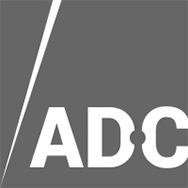by Nathan Swinson-Bullough

At Imageco, we believe that building a greener future within the print industry requires collaboration and knowledge sharing. Recently, Nathan spoke to Denise from Kirbyco on the little ways in which printers can become more sustainable! There was so much juicy advice that we’ve had to split the interview over two blogs, catch up on part one here. Here is part two….
An area we’ve had a big focus on is our processes. We work with a lot of HP’s products because they’ve done a really good job in developing more sustainable printers and inks. What do you think can be done within processes?
Processes would need to be the next focus I feel. It’s not just what we print but how we print it and the electricity we use to run printers and equipment as well as heat and cool workshops and print rooms.
Being more sustainable can be as simple as switching off lights and machinery when not needed, improving efficiencies in printing and workflow or consulting with different energy service providers to access more renewable energy sources. A more unknown one is using solar tints on windows. This is another great energy saving tool to reduce the energy needed to heat and cool workspaces.
That’s so interesting, we’ll definitely need to have a look into that for our workspaces. We’ve done a lot of work reducing our energy usage by installing solar panels and a voltage optimiser, but I never even considered something like solar tints.
We think transportation has a big role to play in becoming greener in any business, especially in print where you can be delivering projects to opposite ends of the country or even abroad, what do you think the implications are of transportation?
Transport is a large contributor to CO2 emissions in both countries.
Running electric vehicles emits less carbon overall. It is certainly not a perfect solution as the sourcing and disposal of the material used for batteries is carbon intensive and while not directly burning fossil fuel, EVs are using electricity which can be coming from a power plant. However, it still an improvement and the way of the future.
Improving your transport logistics by planning deliveries and installations more efficiently is a quick and easy way to make an immediate change and become more sustainable. For some campaigns you can choose products that customers can apply themselves to reduce site visits.
Better managing your inventory and consolidating your material orders will cut down on those urgent courier deliveries for small amounts of stock, as well as saving you money!
Absolutely, I have an electric vehicle myself and we’ve installed electric charging points at our facility because it’s definitely the future. It will be interesting to see how the transition to EVs goes over the next few years. The general mindset of the population is sure to either make or break it.
Speaking of mindset, do you think that printers need an entirely green mindset in order to achieve these points?
Being a sustainable business is more than just a goal, it is a way of being. Before you can commit to something you need to care to create the motivation needed.
Not everyone believes in climate change, its impact or role that humanity plays. Sceptics may say that the planet has warmed and cooled before, it is just a natural cycle, but it is not just about saving the planet. Changes in temperature have the power to wreak havoc on life on earth. Just ask the dinosaurs.
The effects of a warmer earth may not end up in complete annihilation but even small rises in temperature are severely disruptive to quality of life. Rising ocean levels displace communities who live on the coast. Increased heavy rainfall or warmer and dryer seasons impact farmers and communities who rely on crops and animals for their wellbeing.
The climate window for human life is very narrow. At very high and humid temperatures our bodies can’t effectively cool down. Over the last 40 years, dangerously high heats are increasingly recorded. Extreme heat effects people’s ability to function properly and increases mortality. Jobs that require people to work outside are disrupted. Global warming is also a social issue. These changes disproportionally impact on people in poorer environments and create even more social inequality. This is all in addition to the direct and far-reaching consequences on species and the ecosystem.
We have an obligation to future generations to do our part. It does not have to be at the cost of business either, in fact, as consumers increasingly favour doing business with companies who have an environmental conscious, it may even improve it.
It’s important that we not only educate people on what we’re doing, but why we’re doing it. Not everyone is proportionally aware of the risks created by climate change, and that is an area we must focus on to build the motivation to change. Thank you so much Denise.
—
We will continue to promote collaborative knowledge sharing through our content channels. To find out more advice on how you can become greener check out our sustainability blogs on our news page. Or to find out what Imageco are doing to become greener, click here.



